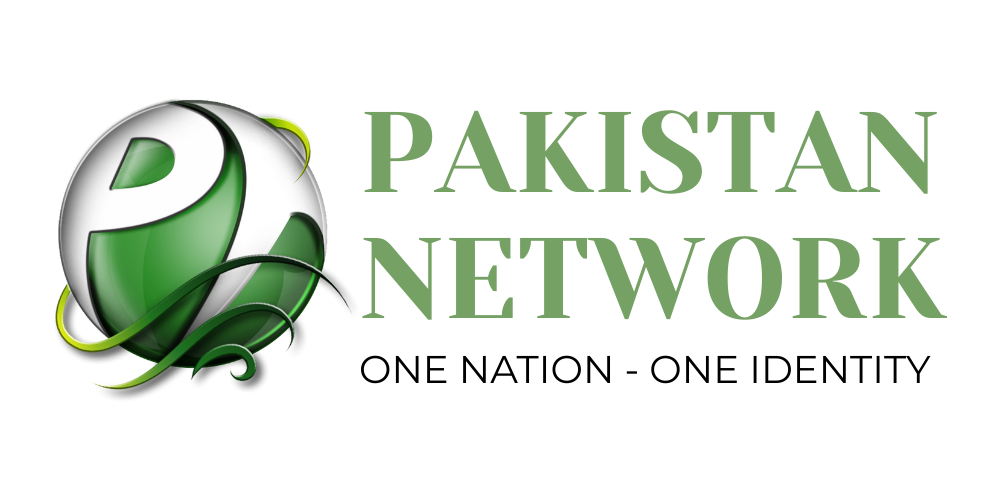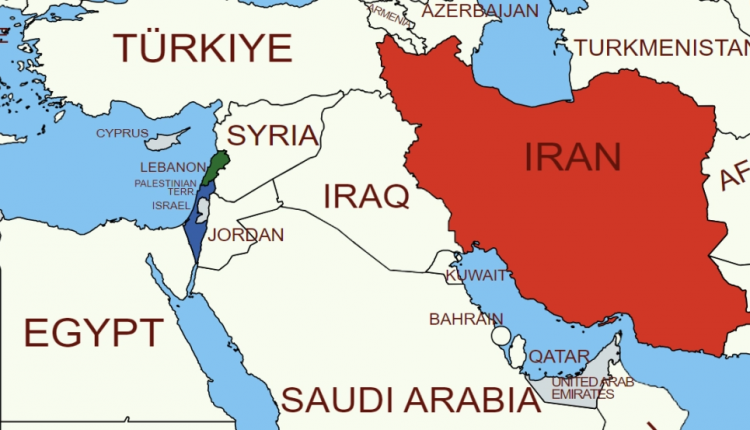The Looming Threat of World War III
As geopolitical tensions rise, the world faces an increased risk of global conflict.
In an era marked by political unrest and military confrontations, the specter of World War III looms larger than ever. Recent developments across various geopolitical fronts underscore the precarious nature of international relations and the potential for local conflicts to ignite a broader global war. As we delve into the current events shaping this precarious landscape, it becomes increasingly clear that the world stands on the brink of unprecedented turmoil.
Escalating Violence in the Middle East
The Israel-Hezbollah Conflict
As of October 2024, the conflict between Israel and its neighbors has reached alarming levels. The Israeli Defense Forces (IDF) have launched a significant ground incursion into southern Lebanon, primarily targeting the militant group Hezbollah killing its top leader Hassan Nasrallah. This military operation has also claimed numerous casualties among Lebanese civilians, prompting widespread condemnation from human rights organizations and exacerbating an already volatile situation.
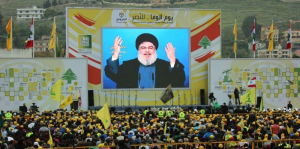
Hezbollah’s response has been equally fierce, launching a series of retaliatory strikes against Israeli positions. The ongoing violence underscores the deep-seated animosity that characterizes the relationship between Israel and Hezbollah, rooted in a history of conflicts that date back decades. The potential for this localized conflict to escalate into a larger regional war is palpable, particularly given the involvement of external actors like Iran.
Israel’s Aggressive Posturing
In a dramatic escalation, Iran launched a barrage of at least 180 missiles into Israel in retaliation for ongoing Israeli airstrikes targeting Iranian-backed groups in the region, including Hamas and Hezbollah. This marked a significant shift in the nature of the conflict, as Iran’s military capabilities are not limited to proxy warfare but extend to direct military engagement against Israel. Iranian officials have publicly declared that they are prepared to retaliate against any perceived violations of their sovereignty, signaling a willingness to escalate the conflict to unprecedented levels.
Israeli Prime Minister Benjamin Netanyahu has vowed to retaliate against Iran, stating that the nation “made a big mistake” in launching missiles at Israel. This rhetoric not only inflames tensions but also heightens fears of a broader military confrontation that could engulf the entire region. As both sides prepare for a prolonged conflict, the specter of World War III looms ever larger.
Iran: A Central Player in Geopolitical Tensions
Iran’s strategic positioning and assertive foreign policy have made it a central player in the unfolding narrative of potential global conflict. The nation has cultivated deep ties with various militant groups across the Middle East, including Hezbollah in Lebanon and proxy forces in Syria and Iraq, which serve to extend its influence and challenge U.S. and allied interests in the region. Tensions with Iran have escalated over its nuclear ambitions, leading to fears that a nuclear-armed Iran could ignite a regional arms race. Moreover, Iran’s aggressive response to perceived threats—such as the assassination of top military officials and aggressive maneuvers in the Strait of Hormuz—demonstrates its willingness to engage in high-stakes confrontations. The potential for a conflict involving Iran is further complicated by its relationships with other nations, such as Russia and China, which may seek to counterbalance U.S. influence. As negotiations around Iran’s nuclear program continue to fluctuate, the specter of military confrontation looms large, highlighting the need for diplomatic solutions that address the underlying tensions while preventing the escalation of hostilities.
The Role of Global Powers
The United States’ Strategic Interests
The involvement of global powers adds another layer of complexity to the current crisis. The United States, traditionally an ally of Israel, has begun positioning military assets in the region to support its ally. The deployment of additional troops and naval vessels in the Eastern Mediterranean raises the stakes, as the U.S. seeks to deter Iranian aggression and reassure its allies of its commitment to regional security.
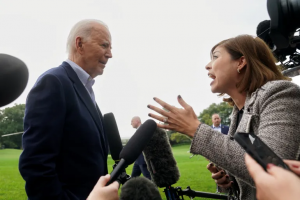
China and Russia: The Geopolitical Chessboard
While the focus remains on the U.S. and Israel, the roles of China and Russia in this unfolding drama cannot be overlooked. Both nations have historically supported Iran and have vested interests in destabilizing U.S. influence in the Middle East. China’s Belt and Road Initiative includes significant investments in Iranian infrastructure, while Russia has cultivated close ties with both Iran and Hezbollah.
The potential for a unified front against the U.S. and its allies is a concern for Western policymakers. As tensions rise, China and Russia may seek to exploit the situation to expand their influence in the region, further complicating the geopolitical landscape. The alignment of these global powers with Iran could transform a regional conflict into a broader confrontation with far-reaching consequences.
The Humanitarian Crisis
The Toll on Civilians
The ongoing violence in the Middle East is taking a devastating toll on civilian populations. Reports indicate that more than 1,000 people have died in Lebanon alone over the past two weeks, with a significant portion of the casualties being women and children. The humanitarian crisis is exacerbated by the Israeli military’s warnings for residents to evacuate northern Lebanon, leading to mass displacement and further suffering.
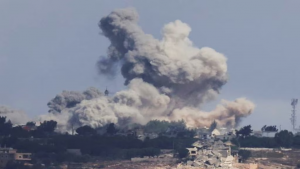
In Gaza, the situation is equally dire, with Israeli airstrikes resulting in widespread destruction and loss of life. International organizations are raising alarms about the deteriorating humanitarian conditions, emphasizing the urgent need for a ceasefire and humanitarian access to affected populations. The sheer scale of human suffering raises ethical questions about the conduct of both sides in the conflict and highlights the need for immediate diplomatic intervention.
The Role of International Organizations
As the violence continues, the response of international organizations is critical. The United Nations has called for an immediate ceasefire and expressed concern about the humanitarian crisis unfolding in the region. However, the effectiveness of these appeals is often hampered by political divisions among member states, particularly in the Security Council.
Israel’s recent declaration that U.N. Secretary-General António Guterres is persona non grata following his failure to condemn Iran’s missile strikes underscores the tensions between Israel and international bodies. This deteriorating relationship complicates diplomatic efforts to resolve the conflict and raises questions about the effectiveness of the U.N. as a mediator in international disputes.
The Bigger Picture: A World on Edge
Historical Context
While the focus remains on the Middle East, the implications of this conflict are global. The interconnectedness of today’s world means that a war in one region can quickly escalate into a broader conflict involving multiple nations. Historical precedents show us that World War I and World War II were both triggered by complex alliances and a series of escalating events that spiraled out of control.
The intricate web of alliances that characterized these past conflicts serves as a reminder of how quickly local disputes can escalate into global wars. As nations align themselves with either the U.S. or Iran, the potential for a multi-front war increases. The involvement of global powers not only exacerbates the immediate conflict but also sets the stage for a more significant confrontation reminiscent of past world wars.
The Risk of Nuclear Escalation
One of the most alarming aspects of the current situation is the potential for nuclear escalation. Both the U.S. and Iran possess advanced military capabilities, including nuclear technology. While the likelihood of nuclear weapons being used remains low, the risk of miscalculations or accidents increases during periods of heightened tension. The world has seen similar scenarios during the Cold War, where misunderstandings and miscommunications brought nations perilously close to nuclear conflict.
The presence of nuclear weapons raises the stakes of any military confrontation, creating a chilling reality where the consequences of missteps could be catastrophic. It is essential for global leaders to recognize the gravity of the situation and prioritize diplomatic solutions to avoid a potential nuclear catastrophe.
A Call for Diplomacy
The current situation demands urgent attention and diplomatic efforts to de-escalate tensions. The world cannot afford another catastrophic conflict, especially one that could involve nuclear powers like the U.S. and Iran. As citizens, we must advocate for peace and support initiatives aimed at resolving conflicts through dialogue rather than violence.
As the specter of World War III looms large, the actions taken today will shape the course of history for generations to come. The international community must rally to address the underlying issues fueling these conflicts, including historical grievances, territorial disputes, and the quest for resources.
Fostering Dialogue and Understanding
To avoid the path to war, fostering dialogue and understanding between nations is crucial. This includes promoting cultural exchanges, addressing grievances through diplomatic channels, and finding common ground on contentious issues. The emphasis should be on diplomacy as the first course of action, rather than resorting to military solutions.
The Power of Public Advocacy
Public advocacy plays a pivotal role in shaping the narrative around global conflicts. Citizens can voice their concerns and push for peaceful resolutions by engaging in activism, raising awareness, and demanding accountability from their governments. The collective will of the people can serve as a powerful force for peace, compelling leaders to prioritize diplomacy over aggression.
As we stand at this crossroads, it is imperative to remain vigilant and informed about global developments. The threat of World War III is not an abstract concern but a pressing reality shaped by the actions and decisions of nations. The choices made today will determine the fate of future generations, and it is our responsibility to advocate for a more peaceful and just world.
The specter of World War III may seem distant, but the events of today hold profound implications for our shared future. By promoting dialogue, understanding, and accountability, we can work towards a world that values peace and cooperation over conflict and aggression.
